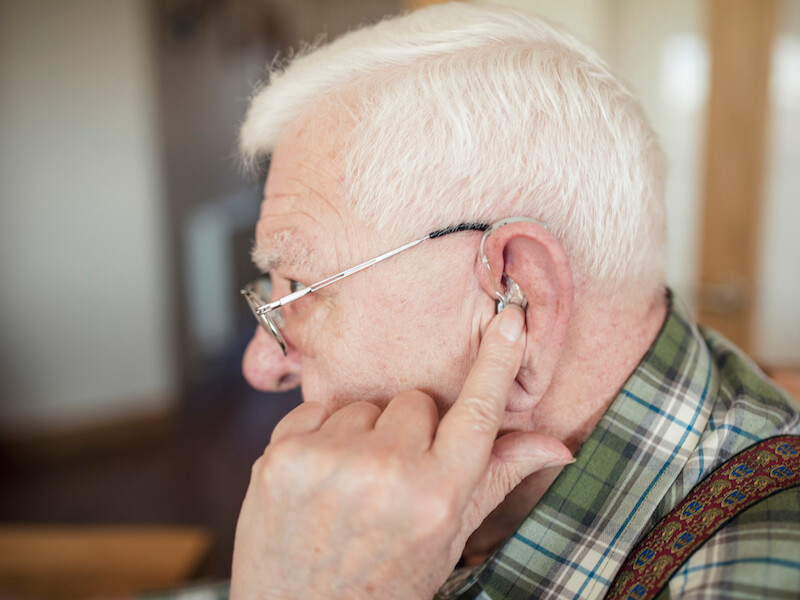
Do you feel like your hearing aid batteries won’t keep a charge as long as they should? Here are some surprising reasons that could occur. How long should hearing aid batteries last? The standard hearing aid battery lasts anywhere from 3 to 7 days. That range is fairly wide. As a matter of fact, it’s so wide that it probably can’t help you predict what should be taking place with your hearing aid. You may be on day 4 at the grocery store when suddenly, things get quiet and you can’t hear the cashier. Or it’s day 5 and you’re enjoying a call with friends when unexpectedly you find yourself feeling very alone because you can no longer hear the conversation. Sometimes the batteries don’t even make that 3 day mark. Like when you’re watching TV on day 2 and suddenly you can’t hear the show your that’s on. It isn’t just inconvenient. You just can’t tell how much battery power your hearing aids have left and it’s making you miss out on life. Here are the likely culprits if your hearing aid batteries drain quickly.
Moisture Can Drain a Battery
There aren’t many species that produce moisture through their skin but humans do. It’s a cooling method. It’s the body’s way of purging the blood of sodium and toxins. You might also live in a climate that’s moist and humid. The air vent in your hearing aid can get clogged by this added moisture and it will be less effective. It can even drain the battery directly by interacting with the chemicals that create electricity. Here are a few steps you can take to prevent moisture-caused battery drain:
- Don’t leave the batteries in when you’re storing them for several days
- Don’t keep your hearing aids in the bathroom, kitchen or other damp conditions
- Get a dehumidifier for your hearing aids
- Before you store your hearing aids, open the battery door
Advanced Hearing Aid Functions Can Run Down Batteries
Current digital hearing aids help people hear so much better than ones that came out just ten years ago. But these extra features can cause batteries to drain faster if you’re not paying attention. Don’t avoid using your favorite features. But just know that if you stream music all day from your mobile device to your hearing aids, you’ll need to replace the battery sooner. Bluetooth, multichannel, tinnitus relief, noise canceling — all of these additional functions can drain your battery.
Batteries Can be Affected by Altitude Changes
Going from a low to high altitude can deplete your batteries, particularly if they’re on their last leg. Bring some extra batteries if you are going on a plane or high up into the mountains.
Perhaps The Batteries Aren’t Really Low
Some models will give you a warning when the battery starts to get too low. Generally, these warnings are giving you a “heads up”. It doesn’t mean you have a depleted battery. On top of this, sometimes an environmental change in altitude or humidity briefly causes the charge to dip and the low battery alert gets activated. Remove the hearing aids and reset them to stop the alarm. You might be able to get a few more hours or even days of battery life.
Improper Handling of Batteries
You should never remove the little tab from the battery before you’re ready to use it. Avoid getting skin oil and dirt on your hearing aid by washing your hands before touching them. Hearing aid batteries should never be frozen. This strategy may extend the life of some types of battery but it doesn’t work with hearing aid batteries. Hearing aid batteries may lose battery power faster if you make these simple handling mistakes.
It isn’t a Good Idea to Buy a Year’s Supply of Batteries
Buying in bulk is typically a smart money move when you can afford to do it. But the last few batteries in the pack probably won’t have full power. Unless you don’t mind wasting a few, try to stay with a six month supply.
Buying Hearing Aid Batteries on The Internet
Shopping from the web can be a good thing. There are some really good deals out in cyberspace. But some less scrupulous people will sell batteries on the internet that are very near to the expiration date. They might even be past their expiration date. So you need to be cautious.
Both alkaline (AA, AAA, etc.) and zinc hearing aid batteries have a date they will expire. If you were going to buy milk, you would look at the expiration date. You need to use the same amount of care with batteries. If you want to get the most out of your pack, be certain the date is well in the future. If the website doesn’t state an expiration date, send the online vendor a message, or purchase batteries from us. Make sure you know and trust the seller.
Modern Hearing Aids Are Rechargeable
There are a number of reasons that hearing batteries could drain rapidly. But you can get more power from your batteries by taking some precautions. If you’re looking to buy a new pair of hearing aids, you might decide on a rechargeable model. You put them on a charger each night for a full day of hearing the next day. The rechargeable batteries only need to be changed every few years.
